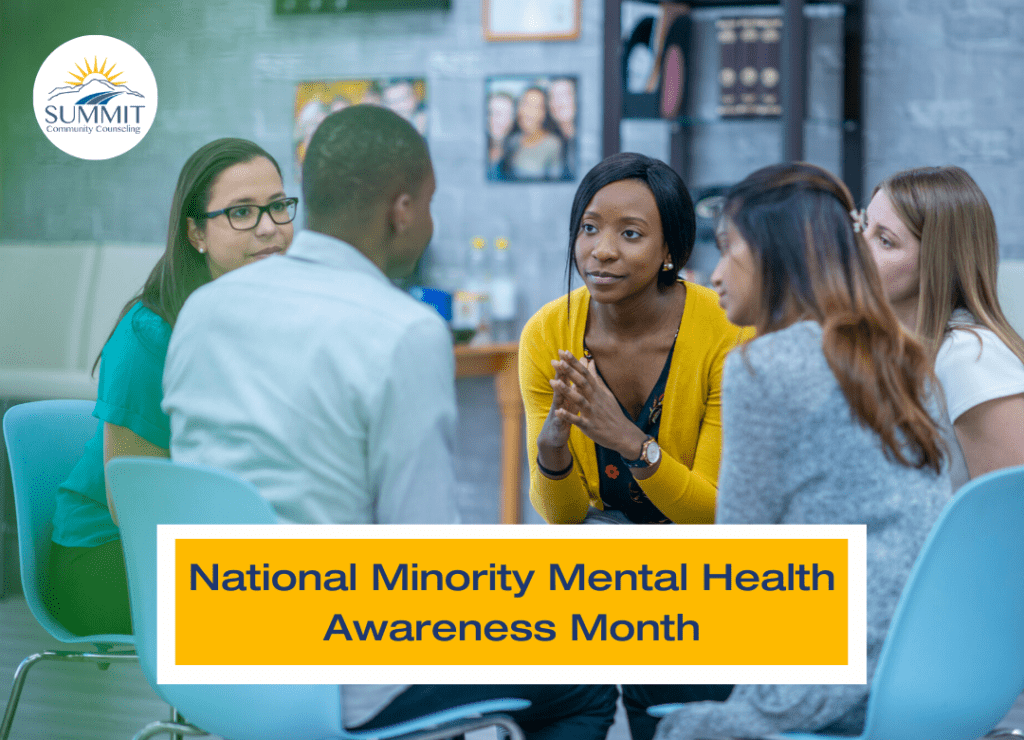Mental Health America developed National Minority Mental Health Awareness Month as a national effort to bring attention to mental health experiences in the BIPOC (black and indigenous people of color). Oftentimes, minorities face traumas by being marginalized and oppressed. According to a 2019 research by the National Library of Medicine, Black men have a higher risk of being killed by police officers than any other group of people. American Indian and Alaska Native men face the subsequent highest risk.
A person of color doesn’t have to directly experience racism to suffer from mental health problems relating to it. Witnessing or hearing about racism and race-based violence can negatively impact mental health. For example, reading news or discriminative content on social media can affect how someone feels about themselves and how safe they feel in society.
BIPOC who have reported experiences of racism have also experienced the following mental health issues:
- Depression:
Depression is a mood disorder that can cause a constant feeling of sadness and loss of interest. A feeling of discrimination can make symptoms of depression even worse.
- Stress:
Stress is a sensation of emotional or physical tension. This can happen when a person feels like they are in danger or in an unsafe situation.
- Emotional distress:
Mental suffering from an emotional response to an experience that arises from the effect or memory of a particular event, occurrence, pattern of events, or condition. A person facing constant discrimination can feel distressed in their day-to-day life.
- Anxiety:
Feeling of unease, such as concern or fear, mild or severe. Reading constant bad news can have an effect on anxiety.
- Post-traumatic stress disorder (PTSD):
Mental health condition initiated by a terrifying event — either experiencing it or witnessing it. People who have lived through acts of racism or have witnessed it, may develop PTSD and feel distressed.
- Suicidal thoughts:
In the worst-case scenarios, people can have notional thoughts about ending their life or feeling that people would be better off without them.
It is important to raise awareness of these mental health issues and as a society, make everyone feel safe and help in any way we can. If you or someone you know needs help, you can call the NAMI helpline or reach out to a professional near you.


